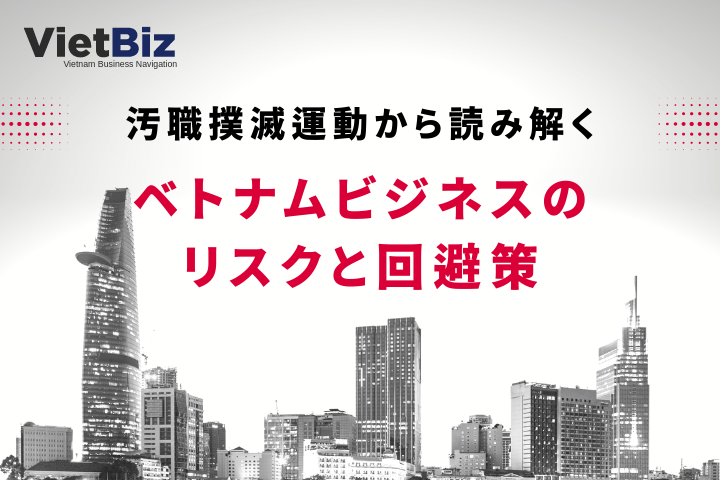Introduction
Vietnam has attracted the attention of Japanese companies and developed countries as one of the most attractive investment destinations in Asia. One of the reasons for this is the political stability provided by the one-party rule of the Communist Party. However, President Nguyen Xuan Phuc and two deputy prime ministers, three in total, were deposed or dismissed on charges of corruption in connection with the response to the new Corona virus. The successive ouster of top ministers is unprecedented in Vietnam’s political history and came as a surprise to many officials. The pursuit of corruption has been directed not only at the government but also at the private sector, and is expected to have a significant impact on the business of Japanese companies that have expanded or are considering expanding into Vietnam.
In this issue, we would like to discuss how the anti-corruption campaign in Vietnam will affect Japanese companies’ business in Vietnam.
Arrests of key government officials in connection with the new Corona response
This chapter presents the major corruption of key Vietnamese government officials that has occurred in recent years.
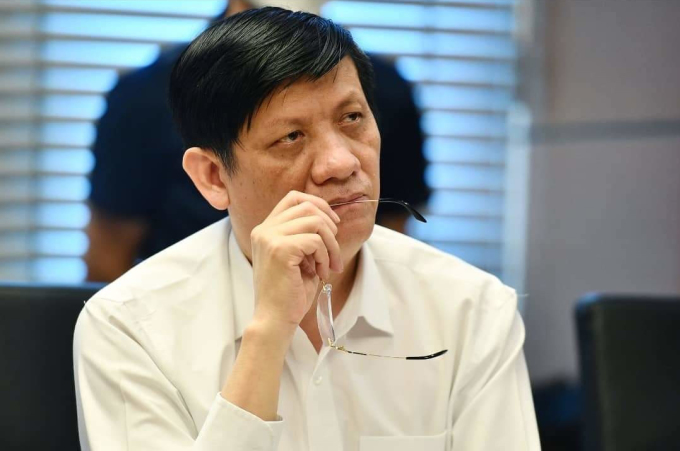
Fraud Involving COVID-19 Test Kits
The string of arrests began with the arrest of former Minister of Health Nguyen Thanh Long, who was arrested on June 7, 2022. It all started when Viet A Technology Corporation, a developer and seller of novel coronavirus test kits, padded its production costs and sold the test kits at unreasonably high prices. The company sold the kits to provinces and cities throughout Vietnam, with sales amounting to nearly 23 billion Japanese yen. Mr. Long is suspected of receiving unjustified profits from Vietor in this case. In addition to the former Minister of Health, more than 100 people have been arrested in connection with this case, including the then Minister of Science and Technology and the Mayor of Hanoi City, and the amount of unjustified profit sharing (kickbacks) is said to be nearly 5 billion yen.
Fraud Involving Temporary Return Flights
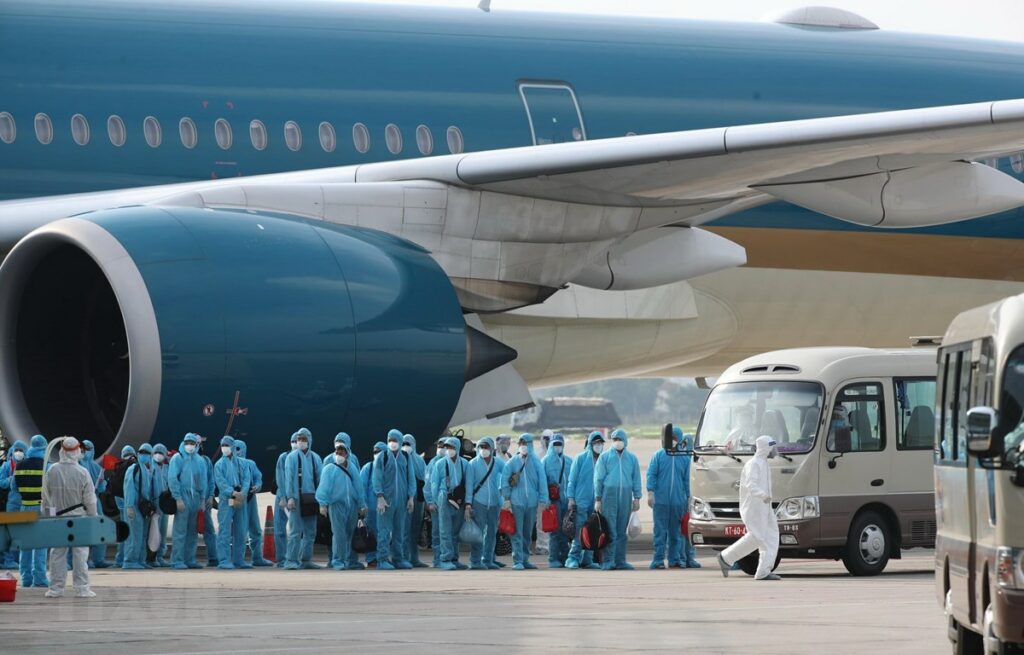
The next irregularity that came to light involved the arrangement of a temporary return flight for Vietnamese living in Japan. The global spread of the new coronas caused a halt in world traffic, and Vietnamese living in Japan were unable to return home and were left behind in Japan. As a relief measure for these Vietnamese, the government arranged extra flights from Japan to Vietnam for their return.
Those who wished to return home on an extra flight had to pay not only for the airline ticket but also for hotel accommodations to be quarantined for two weeks after returning home. Normally, the combined cost of the airline flight ticket and hotel accommodations for two weeks would be about 100,000 yen. However, the travel agency that arranged the return flight and accommodations charged the return travelers an excessive fee, several times the fair price, and made an unfair profit. Part of this profit was used to bribe the Ministry of Foreign Affairs and other authorities.
More than 40 people were arrested in this case, including then Ambassador to Japan Boo Hong Nam and Ambassador to Malaysia Chan Viet Tai, as well as senior officials related to the Ministry of Foreign Affairs.
Private sector also bearing brunt of corruption fight
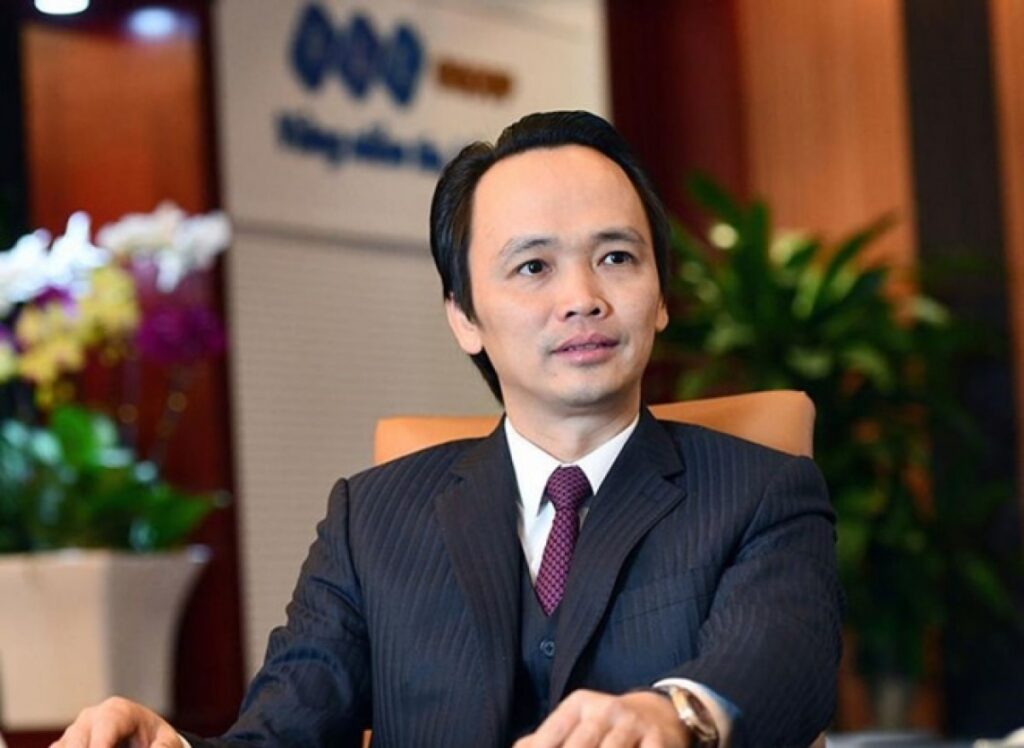
The campaign against corruption has also been directed at the private sector, particularly the real estate industry. FLC Group is known as a major conglomerate with subsidiaries operating in many fields, such as airlines and securities companies under its umbrella.
Also in April 2022, Do Ain Dung, chairman of real estate giant Tan Hoang Minh Group, was arrested on charges of fraud involving the issuance of small private placement bonds, and in late 2022, Truong My Lan, chairman of another real estate giant, Van Tinh Phat Group (VTP), was also arrested for fraud involving the issuance of bonds.
The series of arrests led foreign investors to refrain from investing in Vietnam’s real estate sector because of the high risk involved, and local financial institutions also tightened their credit controls, which contributed to the decline in real estate prices.
Eradicate Corruption or Fight for Power?
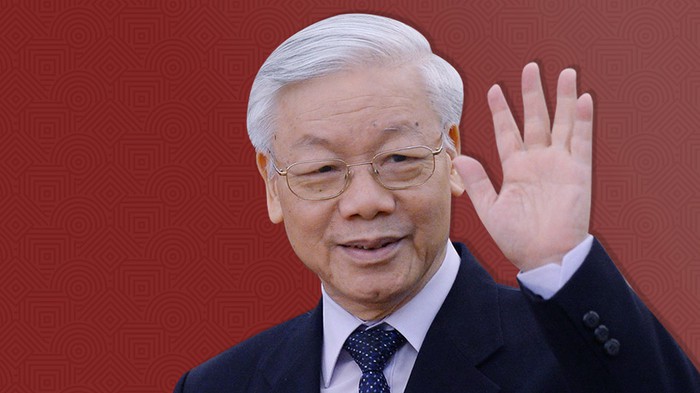
While some have praised the series of anti-corruption campaigns mentioned above as a move to make Vietnamese politics cleaner, many others believe that they are merely part of a power struggle within the Communist Party.
General Secretary Nguyen Phu Trong leads the campaign against corruption
Leading the campaign against corruption has been General Secretary of the Communist Party of Vietnam and the country’s supreme leader, General Secretary Nguyen Phu Trong. After graduating from Hanoi National University, he joined the Communist Party of Vietnam (VNCP) and served as editor-in-chief of the party’s official magazine, Tạp chí Cộng sản (Communist Magazine), before being elected to the Politburo and in 2011 was elected Party General Secretary. As of 2023, General Secretary Chung is serving his third term, exceeding the party’s rule that the general secretary can only be reappointed for a second term.
Involvement with Anti-Corruption Campaigns
It is widely believed that Prime Minister Hook, who has now retired, and the arrested officials were “reformists” who were more forward-looking in their approach to capitalism. Prime Minister Huc, in particular, had taken an aggressive stance toward opening the market to foreign companies and attracting investment. It is also said that the representatives of the real estate developers who were arrested were close political rivals of Chung. Therefore, some domestic and foreign experts believe that the anti-corruption campaign may have been a “purge” by Chung to strengthen his political base.
Impact of Japanese Companies on Vietnamese Business
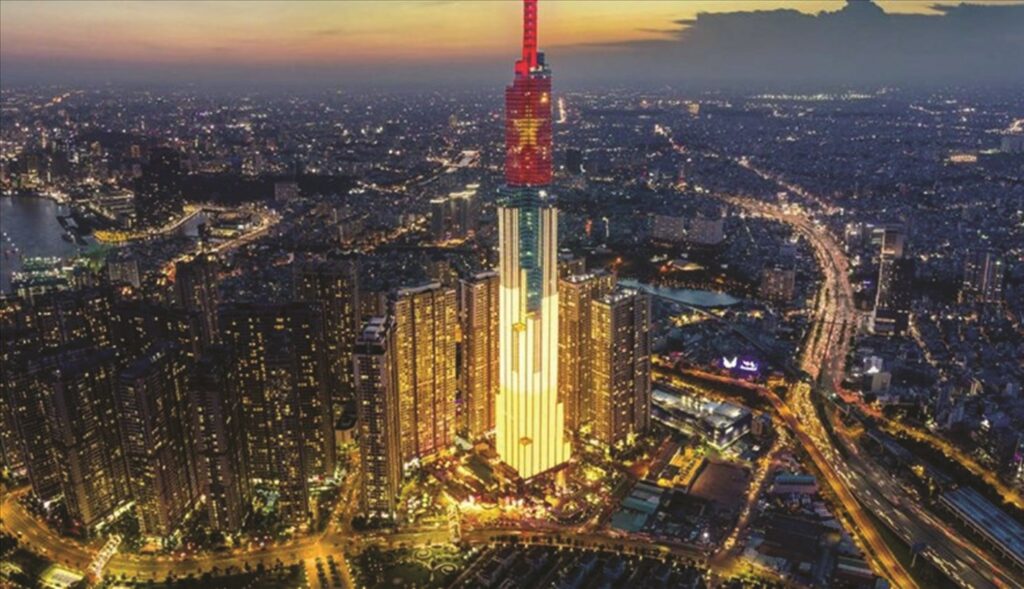
This situation has had a major impact not only on domestic politics in Vietnam, but also on the Vietnamese economy. In this section, we will examine the possible impact of this situation on Japanese companies’ business in Vietnam.
Delays in Investment Project Approvals
Although the Vietnamese Public Security Bureau is responsible for identifying and arresting suspects for political crimes, the definition and criteria for such charges are often vague. In particular, in Vietnam, the definition of corruption includes “acts that cause damage to state property,” and a person can be charged with a crime depending on his or her decision, regardless of whether it is intentional or unintentional.
As a result, government officials are reluctant to make important decisions, fearing that they may be next in line amid a string of arrests of high-ranking government officials. In particular, the licensing of large foreign investment projects has not progressed, and thousands of projects have been put on hold.
Risks of Partnering with Vietnamese Companies
Japanese companies often conduct business in Vietnam through mergers and acquisitions, the establishment of joint ventures, and business alliances with local Vietnamese companies. On the other hand, the current anti-corruption campaign is targeting even private companies, increasing the risk that local Vietnamese partners will become targets of investigations or have their management arrested.
In Vietnam, the larger the company, the deeper the relationship with the Vietnamese authorities. In addition, many former state-owned enterprises are managed by Communist Party members or senior government officials. In such cases, even if they have not committed any wrongdoing, there is no possibility that they will be charged with “damaging state property” retroactively.
If such a situation were to occur, it would not only bring Vietnamese business to a standstill, but would also be a headache for Japanese companies, as they would have to consider the reputational risk to their Japanese headquarters.
Risk Aversion for Japanese Companies
To avoid the risks described above, Japanese companies need to be more careful in identifying investment projects and scrutinizing local companies and their management teams.
For example, HR due diligence (DD), which is often conducted in M&A, is an effective risk avoidance measure. HR DD is an effective way for Japanese companies to feel more secure in partnering with local partners, as it involves a close examination of the backgrounds, political behavior, and past misconduct risk of key management and corporate personnel.
It will also be necessary to scrutinize the type of dealings with government officials in the company’s transactions as well as within the company itself.
Conclusion
In this article, we have discussed the impact of the anti-corruption campaign in Vietnam on Vietnamese business and how Japanese companies can avoid risk. While there are always risks involved in cross-border business, Vietnam remains a promising investment destination for Japanese companies. If you would like to know more about the contents of this article, please contact us.
▼ If you are interested in assisting a Vietnamese company with credit checks, compliance checks, or developing a compliance code of conduct, please contact us at.

